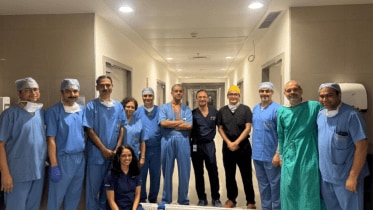India is at a crossroads in its battle against heart disease, with cardiovascular conditions emerging as the leading cause of mortality across the nation. As the country continues to urbanize rapidly, health experts are raising the alarm over the growing disconnect between modern lifestyles and traditional wellness practices. The convergence of unhealthy diets, physical inactivity, and increased mental stress is creating a perfect storm for cardiac ailments to thrive—especially among younger populations who once considered heart issues a concern for the elderly. Alarming reports now show heart attacks striking individuals as young as their twenties. Without urgent preventive action, this trend threatens to burden millions of families and the nation’s healthcare system alike.
Health risks
Cardiologists stress that while genetics play a role, many of these conditions are preventable through lifestyle changes. Regular physical activity, a balanced diet rich in fruits and vegetables, reduced intake of processed foods, and routine heart checkups can drastically lower the risk. Early symptoms—such as breathlessness, fatigue, and irregular heartbeat—should never be ignored, as timely detection can be lifesaving.
Heart complications
On the treatment front, India marked a milestone when Amrita Hospital, Faridabad, successfully performed four Transcatheter Pulmonary Valve Replacement (TPVR) procedures in a single day, avoiding open-heart surgery. The patients, all of whom had previously undergone surgery for Tetralogy of Fallot in childhood, were suffering from complications due to leaking pulmonary valves. Thanks to the Harmony™ Valve system and the expertise of a multidisciplinary team led by Dr. S. Radhakrishnan (Head & Professor, Paediatric Cardiology and Adult Congenital Heart Disease), Dr. Sushil Azad (Deputy Head & Principal Consultant, Paediatric Cardiology), Dr. Ankit Garg (Consultant, Interventional Cardiology), Dr. Savita Krishnamurthy Guin, and Dr. Shashikapoor Dubbar Yadav (both Assistant Professors, Paediatric Cardiology), all four patients were discharged within 48 hours.
This breakthrough highlights how advanced, minimally invasive techniques can transform congenital heart disease care in India—especially when backed by timely diagnosis and lifestyle awareness.
